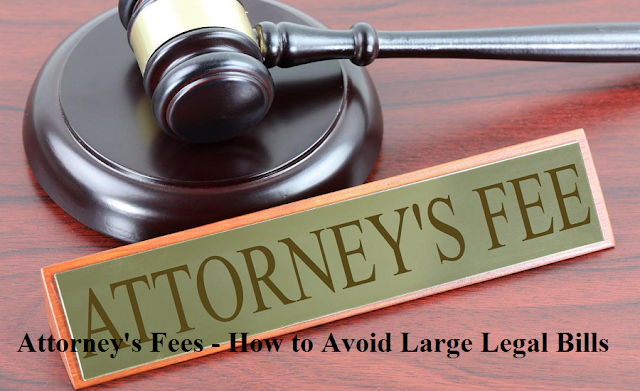To avoid large legal bills, consider the following strategies:
- Clear communication: Ensure you have clear communication with your attorney from the start. Discuss your budget and expectations regarding legal fees, and establish open lines of communication to address any concerns or questions throughout the process.
- Scope of work: Clearly define the scope of work with your attorney. Discuss and agree upon the specific tasks and services they will provide. This helps prevent any misunderstandings about what is included in the legal representation and avoids unnecessary or unexpected charges.
- Fee structure: Understand the attorney's fee structure and billing methods upfront. Inquire about alternative fee arrangements, such as flat fees or capped fees, which provide more predictability and control over costs.
- Ask for cost estimates: Request a written cost estimate for the legal services you require. This estimate should outline the anticipated fees for each stage of the process, including any potential additional expenses.
- Regular updates: Stay informed about the progress of your case and ask for regular updates. This allows you to address any concerns or potential cost overruns early on, rather than discovering them at the end.
- Be organized and prepared: Help your attorney by providing organized and relevant information promptly. This reduces the time they need to spend on administrative tasks, research, or organizing your case, ultimately saving you money.
- Consider alternative dispute resolution: If possible, explore alternative dispute resolution methods such as mediation or arbitration, which can be more cost-effective than going to court.
- Review invoices: Carefully review each invoice you receive from your attorney. If you notice any errors or have questions about specific charges, don't hesitate to seek clarification or request adjustments.
- Get a second opinion: If you are concerned about the size of your legal bills, consider seeking a second opinion from another attorney. They may provide insights into cost-saving strategies or alternative approaches to resolving your legal matter.
Remember, balancing cost-saving measures with the need for quality legal representation is important. The focus should be on finding value and achieving the best possible outcome rather than solely aiming for the lowest cost.
Many lawyers make a good living and they do it by charging attorney fees. This begs the question, what are attorney fees and what should I know about attorney fees before hiring an attorney? This article describes the different types of attorney fees and provides some tips for determining the right type of attorney fees for you.
1. Minutes at a time: attorney fees per hour
Most attorneys charge an hourly rate. Hourly rates are usually calculated from hourly observations in increments of one, six or ten minutes. Some attorneys may employ long hours. Hourly rates for attorneys vary based on the location of the attorney, the type of work being performed, and the time required. It's not uncommon for specialty sponsors to charge more than $600 per hour. Most attorneys charge an hourly rate close to $300 per hour. While getting a lawyer with high hours may seem silly, clients should understand that a professional can get the job done faster than a non-professional. This is especially true if a non-professional has to pay hours to speed up the trial.
2. One successful legal issue at a time: Perpetual attorney fees
Attorney fees. This fee depends on the success of the attorney in legal matters. They are usually calculated using a set percentage. For example, a personal injury attorney might charge you an accident fee of 40% of each recovery. This fee can vary from 30 to 60%. Emergency costs can push attorneys to do their best to resolve issues. If extended and an agreement is reached before the end of the case, the possible fees can induce the attorney to settle the money early in the case. In this case, the attorney does very little work and is paid - no matter how little he gets for his efforts.
3. Legal problems regardless of outcome: Lawyers' fees are fixed
Fees are not always available to lawyers. These fees have a fixed fee or fees paid in dollars. These fees can vary widely, but should be related to the attorney's estimate of how long the case will take, plus a profit margin. So a problem that might take 10 hours for an attorney whose hourly rate is $300 per hour can be given to that attorney for $3,500. Fixed income can help clients budget for legal expenses, but they have some drawbacks. Because they are not tied to the outcome of the case, lawyers can work faster, not better. In addition, attorneys may be required to cooperate and charge a separate fee for each case. This can end up costing the client more than the attorney fees or hourly fees they are supposed to be paying. Conclusion
Clients should consider these options when deciding which attorney to hire. Ultimately, it is up to the client to negotiate an attorney fee payment plan that they are comfortable with. Many attorneys welcome this type of negotiation.

